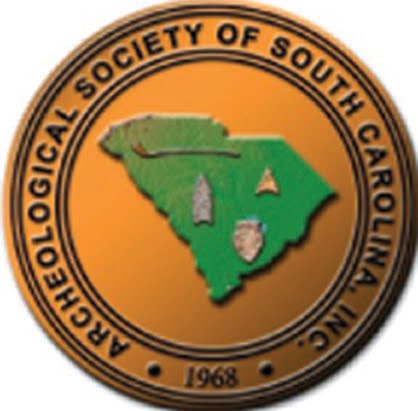Fall Field Day 2012, Santee State Park, Santee, SC
The 25th Annual Fall Field Day will be held on TOMORROW, October 20, at Santee State Park. The Society is presenting a variety of activities for the benefit of members and the general public from 10:00am until 8:00pm. These activities include: lectures and exhibits by archaeologists working in South Carolina, archaeological excavations, a tour of the Santee Mound (1:00pm), first skills (Primitive Technologies) demonstrations, and artifact identification. The admission fee for the general public is $5.00 for adults and $3.00 12-18, Free under 12. ASSC members are admitted for free. An auction benefiting the society will be held at noon with a graduate student grant-in-aid raffle following at 4:30. A lantern tour stopping at several campfires from the past will be held from 6-8pm . A performance by the Edisto River Singers will occur between 5:30 and 8pm
Sport Diver Archaeology Management Program
Lecture (Hilton Head Island Wreck Project)
Diver Gear Demo and Shipwreck Mapping Station
Hobby Diver Tables (Joe Harvey & George Pledger)
Artifact Displays with focus on Civil War
Jim Spirek
Lecture (Navy Wrecks/Harbor Survey)
Chris Amer, Ted Gregg, Bob Butler
Lecture (CSS Pee Dee/Mars Bluff)
Johanna Rivera and Mike Scafuri (Hunley)
Lecture (Hunley)
Scott Harris
Remote Sensing on water
Primitive Skills
Flintknapping and stone tool use - Sean Taylor
Making fire the hard way - Fuz Sanderson
Throwing Spears with an Atl-Atl - Roger Lindsay
Catawba Pottery - Keith "Little Bear" Brown
Historic Reenactors
18th century trader and Indian - Jason Smith and Jason Melius
French and Indian War soldiers - Ashley Chapman
Activities
Pottery refitting, archaeology bingo, and more- SCAPOD
Pottery making for kids - Bobby Southerlin and Dawn Reid
Artifact Identification - Tommy Charles, Al Goodyear
Site Excavations - SC State Parks
Posters and Exhibits
The Johannes Kolb Site-T-Shirt sales
PAST (Piedmont Archaeological Studies Trust)
SC State Historic Preservation Office
ASSC
Archaeological Consultants of the Carolinas
Brockington and Associates
Sales
ASSC publications
ASSC T-shirts
Auction Items donated so far include Suzanne Linder's book on the Great Pee Dee, A River in Time, a set of leather suitcases, a nice picnic basket, Jodi Barnes' book The Materiality of Freedom Archaeologies of Postemancipation Life, handmade pottery, a voucher for the SDAMP artifact Id workshop, and more.
The Edisto River Singers - Native American drummers and singers led by Chief Andy Spell
Santee State Park is located at 251 State Park RD in Santee, South Carolina 29142 and convenient to both I-95 and I-26. There is camping and lake side cabins at the park and plenty of hotels in Santee.
For more information about the park, call(803) 854-2408
This event is funded in part by grants from The Humanities Council SC and the Council of South Carolina Professional Archaeologists




